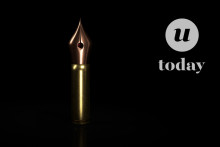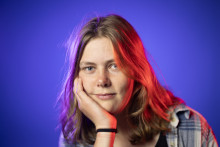Today is an important national holiday in the Netherlands: Bevrijdingsdag or Liberation Day. Every year on 5th May, Dutch people celebrate the end of the occupation by Nazi Germany. And, consequently, the end of World War II. Before the pandemic, this meant military parades of the allied forces, music festivals and big crowds. A couple of times I - as a German - celebrated Liberation Day in the Dutch town of Wageningen. Actually, a historically meaningful place where details of the capitulation were negotiated on 5th May 1945. In Germany, we have holidays to remember the war and all its cruelty. But the end of the war was never a reason to party cheerfully. In the end, it was our fellow countrymen and grandparents who invaded countries and caused pain and suffering. You can imagine that I felt hesitant to join the celebration of freedom in Wageningen. Hesitant to walk past the educational posters about the violent conflicts and then get myself a beer. Fortunately, no one else made me feel unwelcome that day. However, I made sure to only speak English instead of German that day.
But it is not just about partying and getting drunk of course. That is what you do on King’s Day. On 4th May, there is the Dodenherdenking or Remembrance of the Dead. To quote Wikipedia, ‘[it] commemorates all civilians and members of the armed forces of the Kingdom of the Netherlands who have died in wars or peacekeeping missions since the beginning of the Second World War.’ It is the actual date of the capitulation of Nazi Germany in the Netherlands. The national ceremony is held every year at the Dam Square in Amsterdam. At exactly 8PM, there are two minutes of silence throughout the country. For the 5th time, I watched this ceremony yesterday. Once again on an empty square due to the pandemic. But, nonetheless, very impressive and moving.
Today is it exactly 76 years ago that World War II ended in the Netherlands. Via a video call Angela Merkel, the German chancellor, gives her speech at the festivities of 5th May in Wageningen. A meaningful gesture to invite a German state representative. Where I know that the collective feelings of guilt and shame dominate on days of remembrance. I am very grateful to have also experienced Dutch celebrations of the end of the war. The Netherlands found a good balance. On the one hand, the important remembrance and mourning of the cruelty and violence. One the other hand, the celebrations of our freedom nowadays. Certainly, Angela Merkel’s speech will be one of the most memorable moments from the Liberation Day festivities for me as a German.







